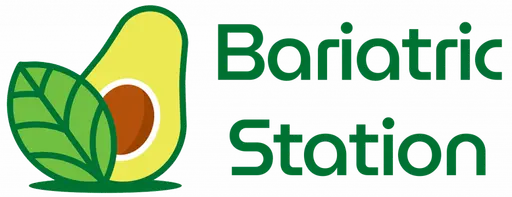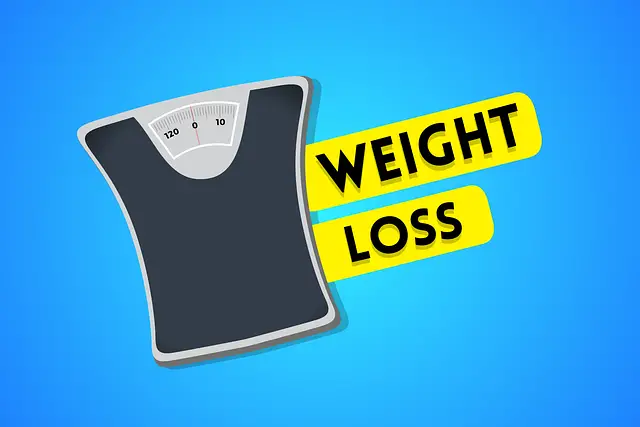One question I get as a health coach and a keto diet enthusiast is, can keto diet cause ketoacidosis? Many people reading and hearing testimonies of what reducing carbohydrate intake and a high-fat diet can do for you, tend to incline towards going keto. And I mean, why not!
But more often than not they hesitate to try ketogenic diets because of the fear of ketoacidosis. I don’t blame them, the name similarity can confuse even the best of us. The keto diet has multiple health benefits promoting weight loss, increasing energy levels, and improving cognitive and brain function and insulin resistance. How does it do all this? Through nutritional ketosis!
This article will address the elephant in the room (the ketogenic diet room) on the difference between ketosis and ketoacidosis and put the matter of “can keto diet cause ketoacidosis” to rest.
What Is Nutritional Ketosis?
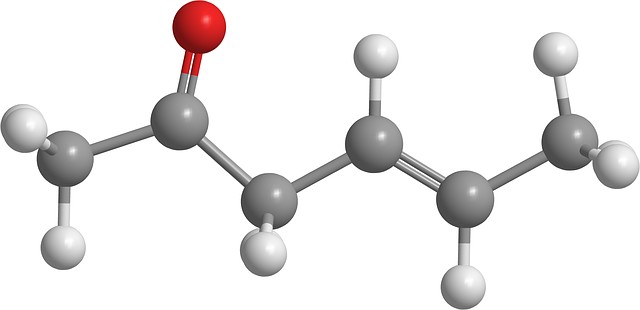
The ketogenic diet promotes weight loss through nutritional ketosis. When on a low carbohydrate diet, your body switches its source of fuel from burning glucose to stored body fat. Ketosis occurs when the body starts burning fat for energy. When you burn fat, there is an increase in ketone levels in the body. Fat is converted to ketone bodies, your brain’s preferred fuel, for energy.
To understand how nutritional ketosis occurs, you need to know the metabolic processes that your body undergoes on a ketogenic diet.
Metabolic Pathways on a Keto Diet
Here are the processes your body undergoes before achieving nutritional ketosis when on a ketogenic diet:
Glycolysis
When you consume a low-carb diet, small amounts of glucose are broken down to produce energy. Inadequate glucose levels will cause a drop in blood sugar and insulin levels.
Glycogenolysis
Lower insulin levels trigger the production of glucagon which increases the hepatic production of glucose. Glucagon triggers the conversion of glycogen in the liver into glucose that can be used as energy. Once glycogen stores are depleted glucagon induces gluconeogenesis.
Gluconeogenesis
Due to carbohydrate restriction and depletion of glycogen stores, the body breaks down non-carbohydrate components like lactate, pyruvate, and proteins. Your body will break down proteins to form glucose for energy. When these are depleted, your body will now achieve ketosis.
Nutritional ketosis
Now that your glycogen and protein stores have been depleted, your body burns fat increasing levels of serum ketones in the body. The burning fat is dietary fat and/or stored fat. A low carbohydrate diet will help your body achieve ketosis while consuming a high fatty acids diet will maintain the production of blood ketones.
What Is Diabetic Ketoacidosis?
Nutritional ketosis is a metabolic process while diabetic ketoacidosis (DKA) is a complication brought about by insulin deficiency and in some rare occasions, insulin resistance. Most individuals with Type 1 diabetes mellitus (juvenile or insulin-dependent diabetes) are diagnosed with ketoacidosis, which is a life-threatening condition.
Lack of insulin leads to an irregular control of blood sugar in the body. A drop in insulin levels triggers the burning of fat that produces ketones. The accumulation of ketones leads to high ketone body levels increasing blood acidity. Diabetic ketoacidosis alters the function of major organs like the kidney and liver. So:
What Causes Diabetic Ketoacidosis?
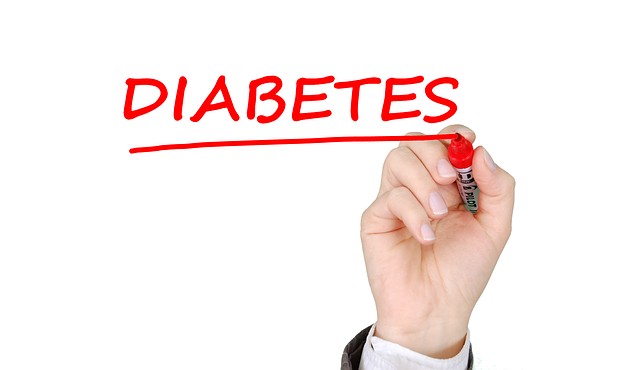
Ketoacidosis occurs when the body produces extremely high levels of ketone bodies. It causes an increase in blood ketone levels and glucose levels. Diabetic ketoacidosis can be caused by:
- Type 1 diabetes mellitus
- Consumption of certain medications like sodium glucose co-transporter-2 (SGLT2) receptors, diuretics, and corticosteroids
- Severe illnesses or infections like pancreatitis
Sodium glucose co-transporter-2 are Prescribed drugs approved by the FDA to be paired with diet to lower blood sugar levels in diabetics. They regulate blood sugar by stimulating the kidneys to get rid of glucose through urination.
Other risk factors of ketoacidosis include alcoholism and drug misuse, missed insulin doses, starvation, covid 19, trauma and stress, pregnancy, severe dehydration, and stroke.
What Are The Symptoms of Diabetic Ketoacidosis?
The main symptoms of diabetic ketoacidosis are:
- High blood glucose levels
- High levels of blood ketones
Other symptoms are:
- Lower abdominal pain
- Nausea
- Frequent urination exhaustion dry mucous membranes and skin
- Acetone-like scent or fruity-scented breath
- Confusion
- Polydipsia/ excess thirst
If you are diabetic or have undergone any form of trauma or stress and you have any of these symptoms, keep a close eye on your blood glucose levels and blood ketones using a urine ketone test kit.
When you measure your blood glucose more than once and get readings above 300 mg/dl (16.7 mmol/L), or readings higher than 80 mg/dl on your urine test, in addition to the symptoms above, seek medical attention immediately.
How Is Diabetic Ketoacidosis Diagnosed?
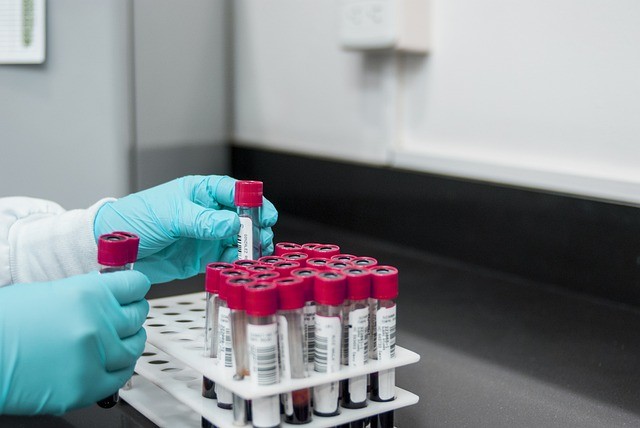
Your primary care physician will perform a physical examination on you to clinically diagnose diabetic ketoacidosis. A blood test will also be performed to check blood glucose, acidity, and electrolytes. Other tests like electrocardiogram, X-rays, or urinalysis can be ordered to check for ketone bodies and to rule out other risk factors as causes of ketoacidosis.
The diagnosis criteria for diabetic ketoacidosis are:
- The plasma glucose concentration of above 250 mg/dl
- pH levels below 7.30
- Bicarbonate level below 18 mEq/L
Adult Diabetic Ketoacidosis Treatment
Diabetic ketoacidosis is treated through the administering of intravenous fluids of potassium, sodium, and chloride electrolytes and insulin. Diabetes care is also a form of treatment for ketoacidosis. Ensure you administer enough insulin at the right time. Eating a ketogenic diet can help you increase insulin sensitivity to your exogenous insulin. It can also help with weight loss and manage your body mass index (BMI).
The complications associated with diabetic ketoacidosis treatment include cerebral edema, hypoglycemia, and hypokalemia related to fluid and insulin administration.
Constantly review your diet and insulin management program even after recovery from diabetic ketoacidosis to know how to keep your diabetes under control.
Ketosis and Ketoacidosis: What Are The Differences?
These are the major differences between ketosis and ketoacidosis to help you know which is which:
Causes
Ketosis is brought about by fasting and a low-carb, high-fat diet. Inadequate blood glucose causes the breakdown of fat through ketosis. People on restrictive diets like the Atkins diet and ketogenic diet experience ketosis.
On the other hand, ketoacidosis is caused by insulin deficiency. The lack of insulin causes fat metabolism producing ketones that increase blood acidity causing metabolic acidosis.
Symptoms
The symptoms of nutritional ketosis include bad breath, increased ketone levels withinnormalrange, weight loss, short-term fatigue, weakness, headache, and dizziness. The symptoms of ketosis are short-term, they only last for about a week, depending on the individual.
On the flip side, you have a sweet-scented breath with ketoacidosis, dangerously high levels of ketone in your urine, thirst, difficulty in breathing, and nausea and vomiting.
Complications
When you are in ketosis, you do not develop metabolic complications, but you could experience nutritional imbalances. While on a ketogenic diet, you may experience vitamin B9, magnesium, vitamin D, and choline deficiencies.
Ketoacidosis leads to the development of metabolic complications like hypokalemia, hypoglycemia, and cerebral edema.
Blood Sugar Levels
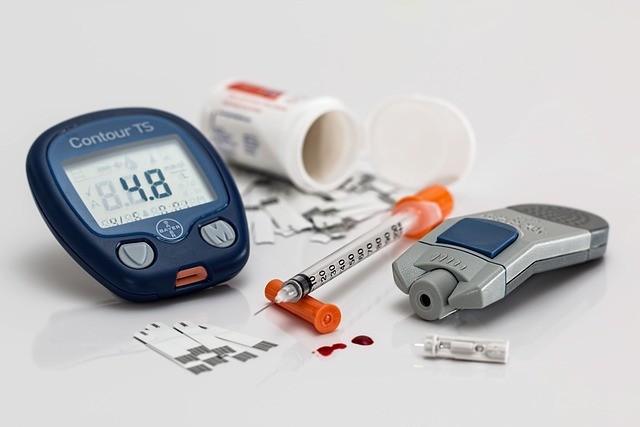
In ketoacidosis blood, sugar levels are extremely high in the range of 13.9-33.3 mmol/L (250-600 mg/dl). Ketoacidosis is characterized by metabolic acidosis and hyperglycemia.
With nutritional ketosis blood sugar remains within normal blood glucose ranges. This is why a keto diet is used to control blood glucose and improve insulin resistance in diabetics.
Ketone Levels
Normal ketone levels range from 0.6 to 1.5 mmol/L. In ketosis, ketone levels range between 0.5 to 3mg/dl, which is a safe range. How are the ketone levels kept in the normal range in ketosis?
When ketone levels rise in ketosis, your body produces a small amount of insulin which tells your body to lower the production of ketones. The levels of insulin produced are not as high as those released when consuming a high-carb diet. This is how on a ketogenic diet you can keep your ketone levels in check.
In ketoacidosis, ketone levels are above 80 mg/dl, which is are too high and require you to receive emergency care.
Don’t let their similarity in names confuse you, the ketone levels in ketoacidosis are dangerously high. The ketone levels in ketosis are five to 10 times lower than those in ketoacidosis.
With ketoacidosis, your ketone levels rise to life-threatening levels because of a lack of insulin to keep their production in check.
Blood Acidity
Your body buffering system helps it maintain a normal fluid range and pH range between 7.35 and 7.45. The ketone levels, serum bicarbonate, and blood pH attained in ketosis are within safe ranges and do not affect the body’s buffering system.
Blood pH levels stay below 7.3 and bicarbonate levels stay below 18 mEq/L in ketoacidosis. The blood acidity in ketoacidosis is caused by accumulation of acidic ketones.
Can keto diet cause ketoacidosis? Most people believe that the rise in ketone levels associated with a keto diet causes metabolic acidosis. But the truth is these levels of ketones in nutritional ketosis are not high enough to trigger ketoacidosis. Blood pH levels stay within a safe range, despite ketone levels rising in ketosis. Blood pH is ten times lower in ketoacidosis than ketosis due to the high accumulation of ketones in the blood.
Comparing acidity in ketosis and ketoacidosis is like trying to compare a breeze to a hurricane because both involve wind or comparing a drizzle to floods because they both involve water!
Effects
Ketoacidosis is a life-threatening condition and has no health benefits to the body. If ketoacidosis is left untreated it can lead to loss of consciousness, damage to the kidney and other organs, and death.
Ketosis can cause nutrient deficiencies like magnesium, folic acid and vitamin D deficiencies. Micronutrient supplementation on keto can help you manage these deficiencies.
You can develop the keto flu when you start eating a low-carbohydrate, high-fat diet before your body adapts to using ketones as an energy source. The flu is temporary, and it goes away after your body has adapted to using ketones.
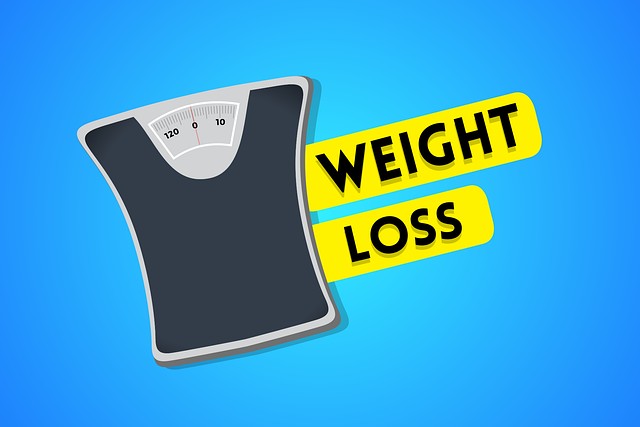
Unlike ketoacidosis, ketosis has health benefits for the body which include:
- Weight loss
- Increased energy levels
- Improved brain function and treatment for mild cognitive impairment (MCI) like Alzheimer’s disease and dementia
- Regulate blood pressure and lower the risk of cardiovascular disease
- Improved insulin resistance in diabetics
- Reduce risks of some cancers
- Improves symptoms of PCOS
Can Keto Diet Cause Ketoacidosis?
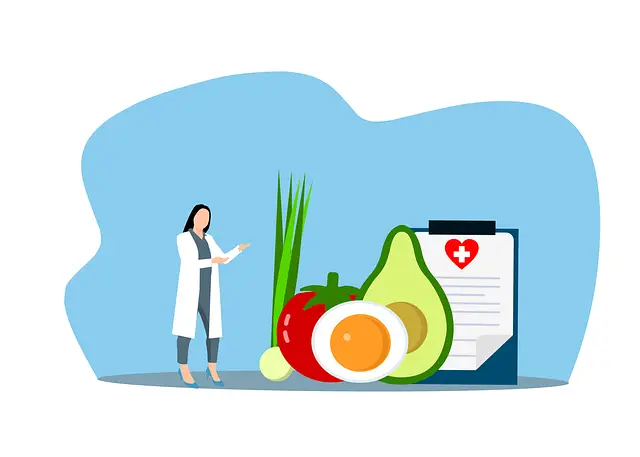
The keto diet cannot cause diabetic ketoacidosis. However, DKA is not the only type of metabolic acidosis. Let’s know the other types of ketoacidosis before we can answer whether a keto diet can cause them.
Non Diabetic Ketoacidosis
There are four types of ketoacidosis. The first that we have discussed extensively, diabetic ketoacidosis. The others are:
Alcoholic Ketoacidosis (AKA)

Alcoholic ketoacidosis aka alcoholic lactic acidosis is a type of ketoacidosis caused by excessive consumption of alcohol. Malnourished individuals who binge drink can develop lactic acidosis. AKA glucose level is never above 250 mg/dl, arterial pH is less than 7.3, and serum bicarbonate is below 15 mEq/L. AKA is an acute form of metabolic acidosis and not as severe as DKA.
AKA is reversible. It can be treated by administering intravenous fluids and monitoring electrolytes. The fluids administered are usually isotonic, mostly normal saline and dextrose. Because alcohol inhibits gluconeogenesis, dextrose will stop ketogenesis and increase glycogen stores.
If a patient with AKA has low potassium levels, the healthcare provider works to normalize hypokalemia before giving dextrose. Other electrolyte imbalances associated with excess alcohol intakes like phosphate and magnesium can be normalized if found low. Alcohol withdrawal is advisable to lower the risks of AKA. In cases of alcohol withdrawal, anti-seizure medication like benzodiazepine is administered to lower the risk of seizures due to withdrawal.
Starvation Ketoacidosis
This type of ketoacidosis is caused by inadequate glucose in the bloodstream as a result of prolonged fasting. Starvation ketoacidosis is not as severe as other forms like diabetic and alcoholic acidosis. It can easily go unnoticed because it is rare and mild in non-pregnancy and it presents itself more severely if it goes untreated for more than two weeks. Ketone levels are slightly elevated, and pH is maintained above 7.3.
The symptoms include low muscle mass, body fat, blood pressure, body temperature, pulse rate, and thin dry hair.
It is more common in pregnancy due to the production of hormones like glucagon and human placental lactogen which increases insulin resistance. Starvation ketoacidosis in pregnancy is life-threatening.
In pregnancy, vomiting is the main cause of metabolic acidosis because it hinders oral intake and leads to starvation. Treatment of starvation ketoacidosis in pregnancy focuses on the importance of eating meals regularly and addresses the root cause of vomiting.
Starvation ketoacidosis can be reversed by the intake of enough food and avoiding skipping meals. It is different from DKA because there is the production of insulin in this form of ketoacidosis.
Euglycemic Ketoacidosis
Euglycemic ketoacidosis is caused by pregnancy, prolonged fasting, and consumption of SGLT-2 inhibitors. It is characterized by high ketone levels but glucose levels are within the normal or lower range, unlike DKA with high blood glucose levels. It can present itself in diabetics and non-diabetics.
SGLT-2 inhibitors are assumed to cause this type of ketoacidosis because they alter the absorption of ketones in the kidney, decrease insulin production and increase glucagon secretion, which leads to glucagon-induced fat breakdown. Research shows that euglycemic pathophysiology can be associated with very low or absolute carbohydrate deficit, a mild degree of insulin resistance, and a higher insulin/glucagon ratio.
A case presentation on the effects of a low-carb keto diet on euglycemic DKA concluded that a patient consuming 15 to 20g of carbs a day with this form of ketoacidosis should avoid a strict keto diet. A review of his diet plus administering insulin at the right dose improved symptoms of ketoacidosis.
Keto Diet and Ketoacidosis
Can keto diet cause ketoacidosis? Most studies on ketoacidosis, ketogenic diet, and SGLT-2 inhibitors associated metabolic acidosis with the drug and not the keto or low carb diet itself. Health care providers should be careful when recommending low carb diets to patients on SGLT-2 medications.
My opinion is you can do a prolonged fast while on a keto diet, because fasting will introduce autophagy into the picture in addition to nutritional ketosis. Start with keto to allow your body to adapt to using fat for energy then introduce fasting. Even when doing intermittent fasting, I would advise starting with the less restrictive forms to lower risk of starvation ketoacidosis.
Keto and intermittent fasting are not recommended to an individual with an eating disorder or to pregnant and lactating women. These individuals already have increased energy needs, and restricting certain foods could have detrimental health outcomes like starvation ketoacidosis.
In Conclusion
We have extensively looked into ketosis and ketoacidosis to enable us to answer the question, can keto diet cause ketoacidosis? The keto diet may be beneficial for weight loss, however, it is could have negative health outcomes especially to individuals with comorbidities like diabetes.
I would recommend speaking to a nutritionist to get advice on how many carbs you can eat on keto, how to balance your carbs and other macro intake and to learn what you can and cannot eat on keto. Also, only try fast keto when your physician approves of it. Finally, monitor your blood glucose and ketone levels regularly to be able to notice any changes early and seek medical attention on time.
Do you know how many carbs to eat on keto? Leave a comment down below with your answer and on any question regarding ketoacidosis and the keto diet. See you next time!
